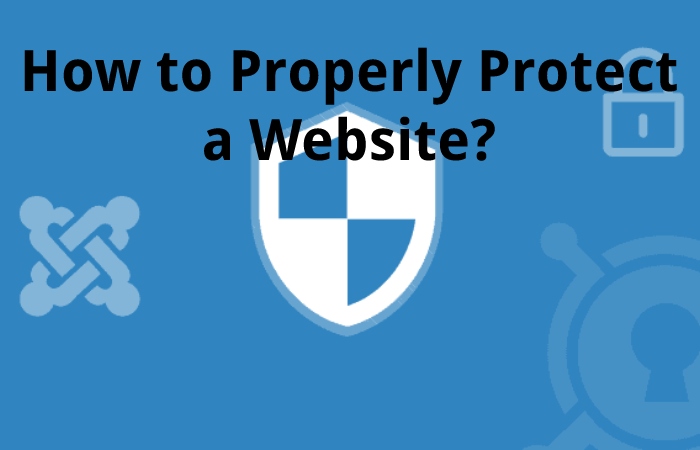Table of Contents
Introduction
Best website security implies investing in actions and solutions focused on guaranteeing data protection. To achieve that goal, keep WordPress up to date, use strong passwords, set up user profiles, back up data, and prefer two-factor authentication.
What is Web Security?
Web security consists of each action or tool adopted to prevent information from being exposed or prone to attack by cyber criminals. Those measures protect users, such as e-commerce customers, blog readers, and hosts.
Cyber criminal attacks can occur in various ways, and in the following topics, we will explain the main ones and what consequences they bring to your website or blog.
About Web Security And Important?
The processes used to protect a website and ensure that data is not exposed to cyber criminals are referred to as web security. In this sense, keeping a website up to date requires ongoing attention to safety on the internet.
Cyber security is vital because unprotected websites are exposed to situations such as:
Theft of Information Stored on the Web Server
The exploitation of personal data – from email addresses to payment information – of visitors to misuse them (identity theft, extortion, breach of trust, scams, etc.).
Redirection to Malicious Web Pages
Show unwanted ads. It was tricking search engine bots and crawlers into doing “black hat” SEO, which aims to drive traffic to websites that don’t follow internet best practices.
Use Visitors’ Computers to Mine Cryptocurrencies
Receive DDoS attacks that can slow down your page or cause it to stop working unexpectedly, making it inaccessible to visitors.
How to make a Website Secure?
If you are concerned about the vulnerability of your visitors (and your company) and do not want to take risks, you can apply web security actions such as:
- Install a security certificate.
- Protect your page with a Web Application Firewall.
- Use a web scanner.
- Update the software frequently.
- Use strong passwords.
- Limit user access and permissions on your website.
Change the presets of your CMS (Content Management System), be it WordPress, Drupal, Joomla or another.
What Plugins can be Used in WordPress Security?
When looking to start a blog, you also need to understand how you can improve your web security and what tools can help. This is the case with plugins. We will show the main ones in the following topics.
Secure Security
Secure Security WordPress plugin is free and one of the best for all platform users. It is a security suite intended to complement the existing security on the site.
It offers users web security features that help make the site more secure.
Among them are:
- audit of security activities;
- monitor file integrity;
- remote malware check;
- deny list monitoring;
- post-hack security actions;
- security notifications.
How can you keep your Website Secure?
There are good does that help increase the safety of the website. Here are some tips related to them.
Keep WordPress up to date
Ensuring all software is up to day is crucial to keeping your website secure.
This applies to the server’s operating system and any software you run on the website, such as a CMS. Remember that hackers exploit web security holes in the site to carry out attacks.
However, if you are using a held solution, you do not have to worry about performing these security updates, as it is the responsibility of the contracted company.
Create Strong Passwords
It seems like a no-brainer to offer advice, as many people know to use complex passwords, but that doesn’t mean this practice is always adopted.
It is essential to use strong passwords for website and server administration profiles. Still, educating users about good practices that have helped ensure web account security is imperative.
Although many people consider it boring, the creation of password requirements is a strategy that helps in the protection of information.
Configure user Profiles
Even if malicious people can’t change your website code, they can work with user registrations.
It will be easier to analyses the attack suffered if you have the IP addresses registered with the respective activity histories.
For example, a significant increase in registered users may indicate a flaw in the registration procedure, allowing spammers to fill the site with bogus content.
What Security Certificates does your Website Need?
The security certificate comes with the hosting service that hosts your website. However, you can choose alternatives for more complex services like banks. Learn about the main ones below.
Domain Validation / Domain Validated (DV SSL)
That certificate is responsible for displaying that lock icon in the address bar. This way, the user can identify if the page he visits is safe.
It is cheap and fast to implement SSL since the activation is done a few minutes after the contract is made.
Organization Validated (OV SSL)
Suppose you have a small business just starting out in the digital environment, such as ecommerce. In that case, you can invest in this certificate to show users that the site belongs to a company that exists, which increases trustworthiness.
How to Properly Protect a Website?

A web page can be subject to attacks by cyber criminals. This means we must consider the importance of having specific tools and good practices. The goal is to prevent intruders from damaging the proper functioning of that site, in addition to compromising visitors.
Sometimes a legitimate site can become an insecure page due to admin errors. For example, if they have installed an outdated plugin or have not considered the importance of protecting access. This could be the gateway for hackers to take advantage of.
For this reason, we will give a series of tips to improve the cybersecurity of our website. Some essential parameters that we must take into account at all times.
Is your WordPress Site Secure?
Although WordPress is considered the most popular CMS to date, this reputation has some consequences. Used by over 35% of websites on the Internet, WordPress has become a favorite target for malware attacks. In 2018 alone, Secure reported that around 23,000 WordPress websites fell victim to security breaches.
Does that mean WordPress has a Terrible Security System?
No way! On the contrary, the leading cause of website security breaches is users’ lack of security awareness. As a reputable CMS, WordPress does its part by regularly releasing security patches and software updates. Despite that, those updates will make little difference unless you know what to do with them.
Conclusion
Web servers, by their structure, open a window between your network and the world. The care you take with the maintenance, updating and coding of your web page will define the size of that window. Before an excellent internal analysis work, it is recommended that you establish the degree of web security you want to have to avoid being a victim of cyber crime.

